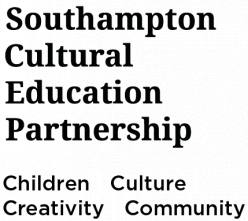Our six Creative Mentors have been busy training. Visual artist Ellen Gillett describes the initial session in the first of our Mentors’ blog posts.

It is rare, outside of therapy; intimate conversations with friends; or job interviews, that we get a chance to talk about ourselves and our creative practice. We are conditioned to believe that as adults it is rude or self-centered to spend too much time talking about oneself.
The first session of Creative Mentor training was, therefore, a rare pleasure in that we were afforded the opportunity to speak about ourselves, our creative practice and what motivates and drives us, in a friendly and supportive environment. This was truly beneficial as it allowed us to stop and reflect on why we do what we do, and where it might all be heading.
In the same manner, we got to hear exciting stories, insights and personal observations from other creatives, across a broad range of creative disciplines. This was enriching due to the information and stories they shared but also really encouraging as this group of people is the team that we will be collaborating with for the next six months in order to deliver this exciting mentorship project.

In that first week we also were introduced to some activity-based techniques and icebreakers for engaging groups of mentees. We began to learn how we might use tools like these to encourage participation, learn about our mentees and break down boundaries between us and a group and between the participants themselves.
The second week built on what we had learnt in the first, expanding what we know about each other’s motivations to join the project. The main focus for the week’s session was learning about the landscape of Southampton and the surrounding area, in terms of provision and services for young people, arts organizations that operate in the area, and how all of these initiatives link and join up. We also delved into different types of organisational structures, how they might be funded and considerations for creatives working within these networks: ideas such as boundary setting, copyright and intellectual property considerations, and the concept of safeguarding.
Overall, the enthusiasm and creativity of those involved with this project; the forward-thinking, inclusive, and continually reflective teaching style; and the exciting hints about what’s in store has made me feel truly enthused about being part of this project and look forward to our next session.
Ellen Gillett
The Southampton Cultural Education Partnership’s (SCEP) objective is to develop a cohort of Creative Mentors as local role models in Southampton, who will work directly with and inspire Children and Young People, including those from at risk, marginalised backgrounds or NEET (not in employment education or training).
The SCEP works to nurture creative and cultural education for all children and young people in the City. We are a consortium of organisations working together, in partnership with Artswork.
The SCEP’s Better Lives Through Culture Programme (BLTC) is part of a large-scale investment of over £130K by Artswork to support an ambitious two-year programme set to directly benefit hundreds of children and young people across the city and focuses specifically on engaging young people at risk of exclusion.
Creative Mentors, part of BLTC, is a paid training opportunity open to early career creatives in Southampton to develop mentoring skills and provide 1-2-1 support to young people aged 11 – 18 years. A dynamic cohort of practitioners, from a diverse range of artforms have been recruited and will be trained by SoCo Music Project to become Creative Mentors, developing their mentoring skills, knowledge and experience. Throughout the programme they will be supported to mentor a Southampton-based young person (mentee) to achieve their goals.
In partnership with Artswork

